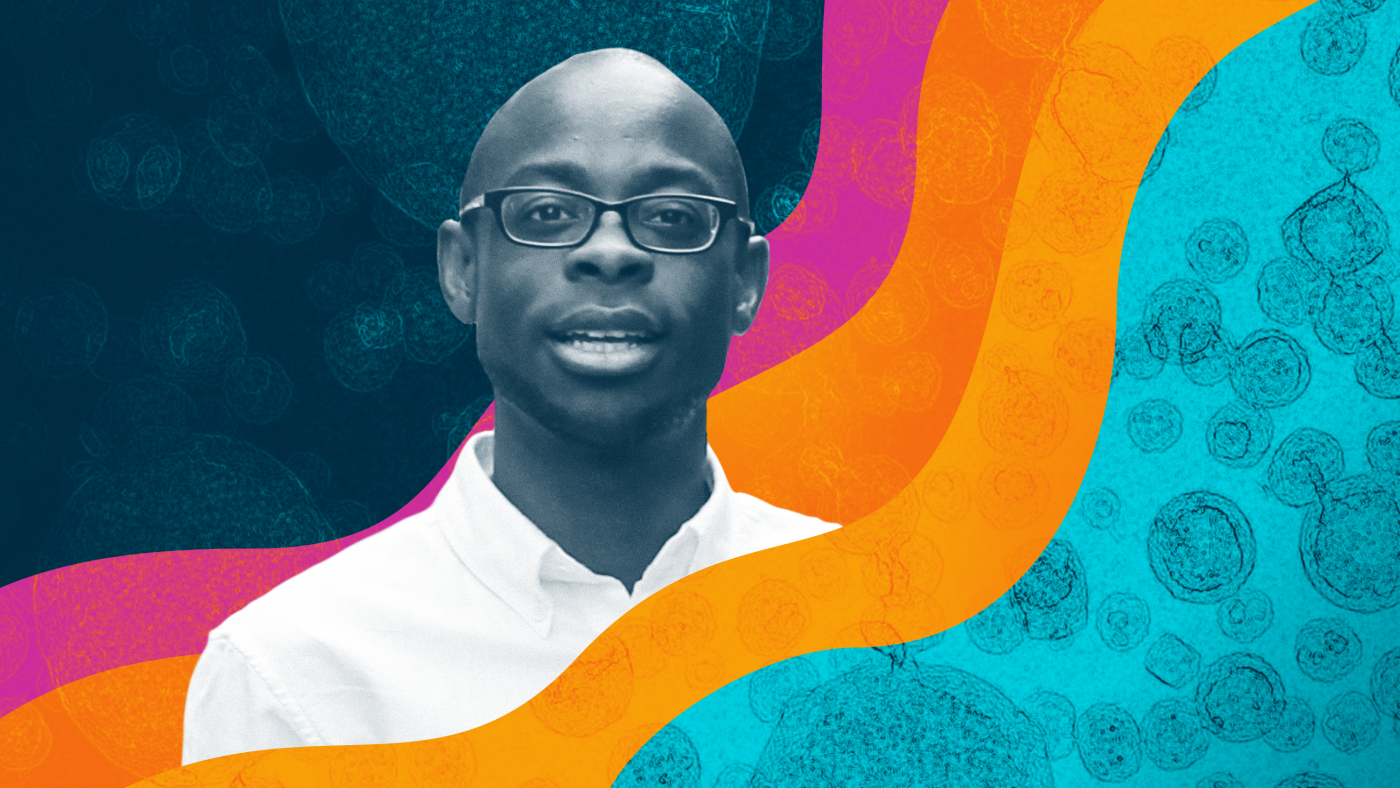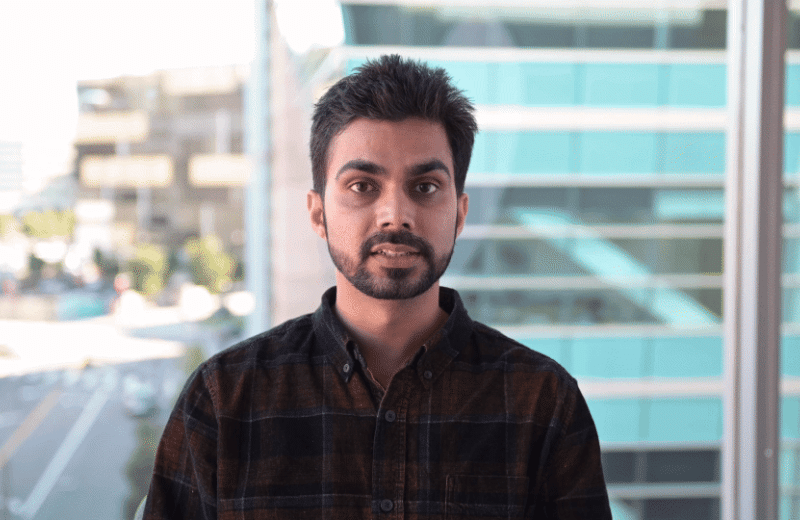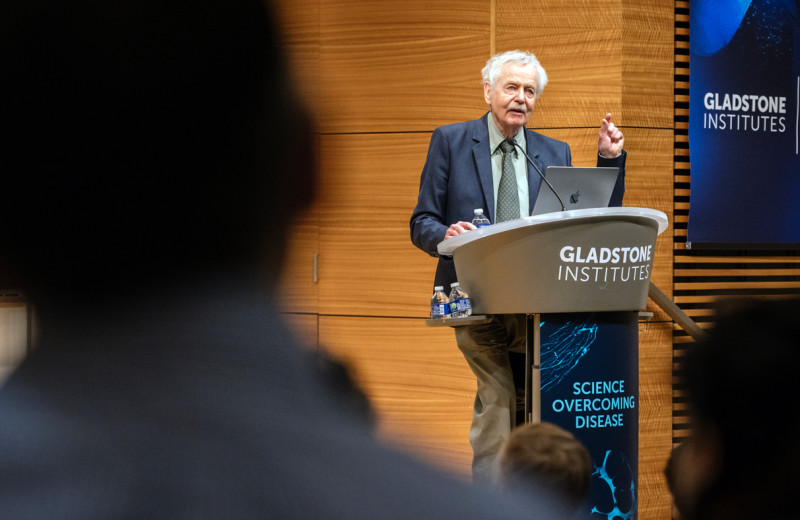Gladstone NOW: The Campaign Join Us on the Journey✕

Jonathan Mathias Lassiter, an assistant professor of psychology at Rowan University and the founder and chief psychology officer of Lassiter Health Initiatives, offers advice for LGBTQ+ scientists who are early in their career.
This year, as a way to celebrate Pride Month, Gladstone is featuring the panelists from Out in Science with a series of articles that asks them five—or more—questions.
Jonathan Mathias Lassiter, PhD (he/him) is an assistant professor of psychology at Rowan University and the founder and chief psychology officer of Lassiter Health Initiatives. Beyond these titles, he is a polymath who utilizes psychology, writing, and dance to help others heal and thrive. He is also the co-editor of the award-winning text, Black LGBT Health in the United States: The Intersection of Race, Gender, and Sexual Orientation.
What is the current focus of your work or research?
The overall goal of my research program is to investigate and harness culturally specific resilience and coping factors to reduce health inequities among racial and sexual minorities. Succinctly, I primarily investigate the culturally relevant resources that racial and sexual minorities cultivate to achieve or maintain positive health outcomes in the midst of multilevel (i.e., structural, interpersonal, individual) adversities (e.g., intersectional stress, mental health problems).
My ultimate aim is to create and disseminate culturally specific, strengths-based health interventions that will be implemented in racial and sexual minorities’ local and online communities to promote primary and secondary prevention of health inequities. I’m currently leadings projects that focus on Black same-sex couples’ relationship quality and health outcomes; spirituality-health research with Black sexual minority men, and developing culturally specific mind-body interventions for Black men.
Why is it important to you to be out in science?
From an Afrocentric psychological perspective, one of the primary methods of achieving mental wellness is through self-definition. Audre Lorde echoes this sentiment in her declaration that one must define themselves for themselves. This act of self-definition requires that I let people in on my process of being. Part of my process of being is my expression of same-sex attraction and love. Through letting others into this process of being, I’m giving them permission to be themselves and modeling how to let others into their process of being.
Plus, representation matters. Seeing a Black same-gender-loving male scientist—who is open with his process of being same-sex attracted and loving—allows Black same-gender-loving people to imagine themselves as future scientists who are fully themselves.
How can organizations create a more inclusive and supportive environment to LGBTQ+ scientists?
Allow LGBTQ+ scientists to be themselves fully. Don’t ask them to do something you would not ask heterosexual scientists to do. Listen to LGBTQ+ scientists about our needs for support. We know better than anyone what we need. Finally, support LGBTQ+ scientists’ well-being with financial resources in the form of salaries that are commensurate with their expertise, as well as funding for research and professional development. Budgets are moral documents that need to be consistent with organizations’ stated goals of inclusion and equity. If an organization’s budgets do not reflect a commitment to LGBTQ+ scientists and initiatives, then their words are useless.
What advice do you have for LBGTQ+ scientists who are early in their career?
Don’t be afraid to think outside the box. Study what you want to study unapologetically. You blaze the path and let the field catch up with you. Also, I recommend reading outside of one’s discipline. What knowledge can you tap into from other fields to enhance your research? Finally, do not let any institution, funding opportunity, or label define you. You are intrinsically worthy. You are the asset—not the institution, the grant, or the label.
Have you had a mentor who has been particularly impactful on your career?
Yes. I have had several mentors that have been particularly impactful on my career. Two come to mind immediately: Robert-Jay Green, PhD, and Dan Bauer, PhD. Both these men encouraged me to imagine the person I wanted to be and to go after that image with all I had. They gave me the space, freedom, and support to explore without fear of repercussions. They let me be me and did not require me to be versions of themselves. They challenge me to this day and are valued loved ones.
Bonus Question: If you could meet any scientist in history, who would it be and why?
I would love to meet Imhotep. He is widely recorded as the first scientist. He was a pioneer in many fields of thought including medicine, spirituality, and psychology. He truly was a polymath! I would ask him how he understood the intersections of all the topics he studied and how they relate to the well-being and transcendence of humankind.
Meet Gladstone: Shyam Jinagal
Meet Gladstone: Shyam Jinagal
Shyam Jinagal explores how genetics, aging, and regeneration shape the heart—and how those insights could one day restore heart function after injury.
Graduate Students and Postdocs Profile Cardiovascular Disease Srivastava LabA Sculptor of Modern Regenerative Medicine
A Sculptor of Modern Regenerative Medicine
Among his myriad accomplishments, Rudolf Jaenisch—winner of the 2025 Ogawa-Yamanaka Stem Cell Prize—was the first to demonstrate the potential of induced pluripotent stem cells to treat disease.
Awards Ogawa Stem Cell Prize Profile Regenerative Medicine Stem Cells/iPSCsMeet Gladstone: Shijie Wang
Meet Gladstone: Shijie Wang
Shijie Wang, a postdoctoral scholar in Steve Finkbeiner’s lab, uses artificial intelligence, robotics, and stem cell technologies to uncover how brain cells die in neurodegenerative diseases like Alzheimer’s and Parkinson’s.
Profile Neurological Disease Finkbeiner Lab AI Robotic Microscopy



